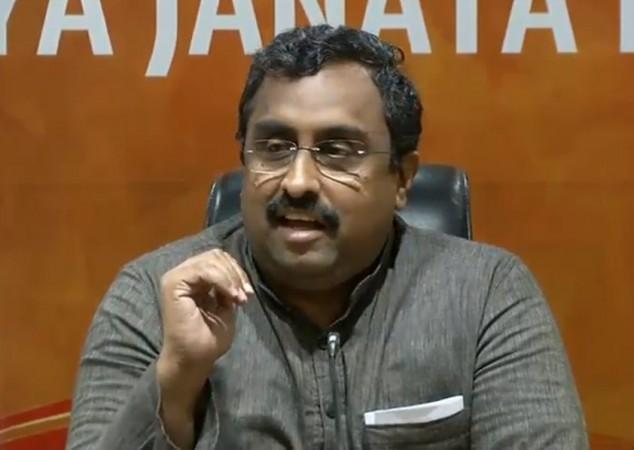
Ram Madhav, the National General Secretary of the Bharatiya Janata Patry, has defended Prime Minister Modi's comments on the presence of clouds during the Balakot airstrike and his advice to experts on how clouds can help the Indian Air Force jets escape Pakistan's radars.
In a Facebook post, Madhav called out everyone who became an expert on radars and said that he consulted with "a real expert, a senior most professor and top nano-technologist" in the country and gave his point of view on what the prime minister had said. It is interesting to note that Madhav did not name the expert but said that he can be trusted and is non-political.
The expert had said, "In the last few days, there has been some discussion on PM's comment on whether fighter aircraft can avoid detection by radars in the presence of clouds. People, even some military personnel, are ignorantly arguing that radars are immune to weather conditions. The right question to be asked is: do weather conditions degrade radar performance? The answer is YES."
The anonymous expert went on to explain, "Military surveillance radars typically operate in S band (2 - 4 GHz) frequency band to achieve the best of accuracy and range. As the frequency increases beyond this range, it is good for accuracy but the signal attenuation will increase affecting the performance of the radar. If the radar is used in S band range of frequencies or lower, the presence of water molecules in air (due to fog, rain, clouds) will affect the performance of the radar through a phenomenon known as molecular dispersion."
The expert said that the clouds and rain will affect the signal and will lead to a "poor signal to noise ratio", hence creating a disadvantageous situation for the radar which will face difficulties in picking up the radio signals.
During situations when the sky is cloudy and there is rain, the signal could be optimized and molecular dispersion can be reduced using circular polarisation of the signals, the expert explains. However, the radar functioning will still be not up to the mark and will underperform.
The expert concluded the statement by saying that there was nothing wrong with what PM Modi had said.
Debates were sparked across all platforms when PM Modi, in an interview with The News Nation, said that prior to the Balakot airstrike he suggested the clouds and rain in the region could be useful for the India Air Force flights to escape Pakistan's radars.
According to the transcript of the interview, "The weather was not good on the day of airstrikes. There was a thought that crept in the minds of the experts that day of the strike should be changed. However, I suggested that the clouds can actually help our planes escape the radars."
Many called him out for his comments and how he could overrule those with expert knowledge on the matter and he was criticised for his "raw wisdom".














